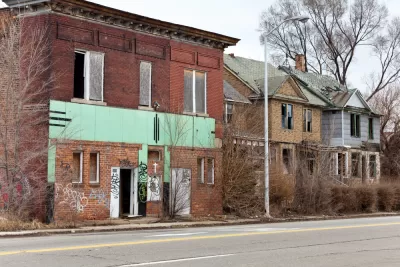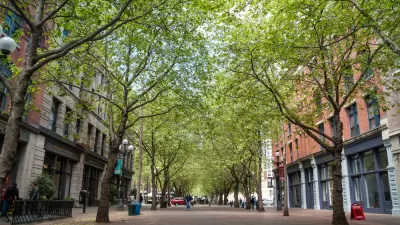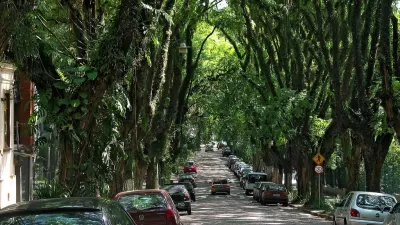The definition of blight may be in the eye of the beholder, but it may also be subconscious. Broken windows, abandoned buildings, and weed-filled yards may actually create stress and degrade health, according to a small study out of Philadelphia.

Designations of blight have a fraught legal history in the United States, with many so-called blighted neighborhoods being wiped out by urban renewal projects in the 1950s through 1970s. Regardless of what the law says, the subconscious mind may in fact know blight when it sees it.
A recent study by Gina South, a professor at the University of Pennsylvania Medical School, looked at Philadelphia residents' responses to blight-reduction efforts. The results of her small sample suggest that residents' heart rates and stress levels dropped when they observed lots that had been de-blighted through repairs, cleanups, and various greening techniques.
"There is increasing evidence to show that our environments do affect our health," South told Fast.co.Exist. "Urban planners really need to consider that as we intervene in places. Cities like Baltimore, Detroit, Cleveland, Philadelphia all have high rates of vacant land and that really impacts the health of people living in those neighborhoods."
"If that turns out the way we think it will, vacant lot greening really will be [proven to be a] low cost intervention cities can take to impact health and safety for a lot of residents," she said.
FULL STORY: Urban Blight Isn't Just Bad To Look At, It's Bad For Your Health

Manufactured Crisis: Losing the Nation’s Largest Source of Unsubsidized Affordable Housing
Manufactured housing communities have long been an affordable housing option for millions of people living in the U.S., but that affordability is disappearing rapidly. How did we get here?

Americans May Be Stuck — But Why?
Americans are moving a lot less than they once did, and that is a problem. While Yoni Applebaum, in his highly-publicized article Stuck, gets the reasons badly wrong, it's still important to ask: why are we moving so much less than before?

Using Old Oil and Gas Wells for Green Energy Storage
Penn State researchers have found that repurposing abandoned oil and gas wells for geothermal-assisted compressed-air energy storage can boost efficiency, reduce environmental risks, and support clean energy and job transitions.

Minneapolis Bans Rent-Setting Software
Four cities have enacted restrictions on algorithmic software that can inflate rent costs.

Oakland to Add 244 New EV Chargers
Oakland plans to launch its new charging network at eight locations by the end of 2025.

Jane Goodall Inspires with Message of Hope, Resilience, and Environmental Action
Speaking in Pasadena, Jane Goodall offered a hopeful and inspirational message, urging global compassion, environmental responsibility, and the power of individual action to shape a better future.
Urban Design for Planners 1: Software Tools
This six-course series explores essential urban design concepts using open source software and equips planners with the tools they need to participate fully in the urban design process.
Planning for Universal Design
Learn the tools for implementing Universal Design in planning regulations.
Heyer Gruel & Associates PA
City of Moreno Valley
Institute for Housing and Urban Development Studies (IHS)
City of Grandview
Harvard GSD Executive Education
Salt Lake City
NYU Wagner Graduate School of Public Service
City of Cambridge, Maryland





























